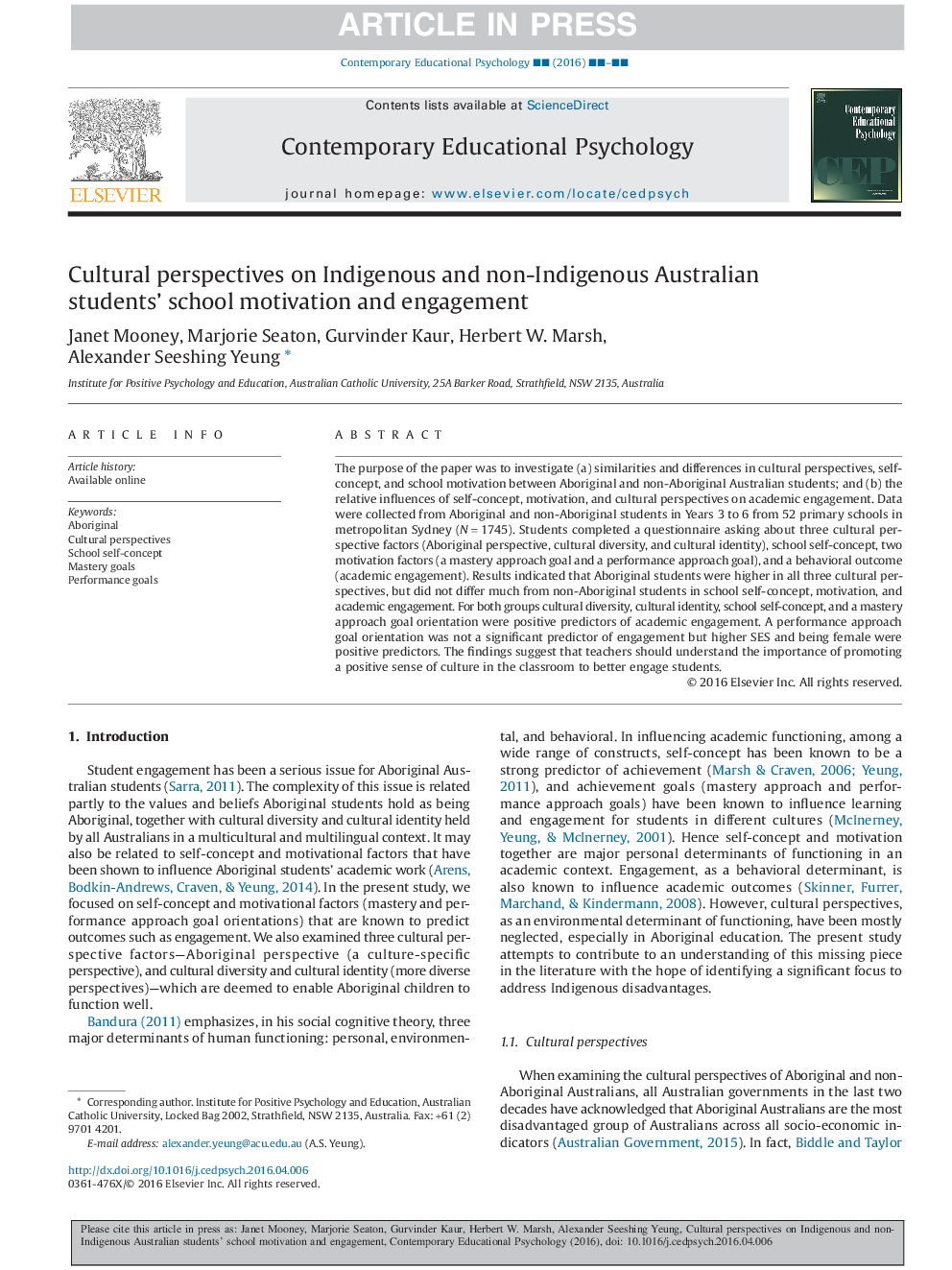| Article ID | Journal | Published Year | Pages | File Type |
|---|---|---|---|---|
| 4937937 | Contemporary Educational Psychology | 2016 | 13 Pages |
Abstract
The purpose of the paper was to investigate (a) similarities and differences in cultural perspectives, self-concept, and school motivation between Aboriginal and non-Aboriginal Australian students; and (b) the relative influences of self-concept, motivation, and cultural perspectives on academic engagement. Data were collected from Aboriginal and non-Aboriginal students in Years 3 to 6 from 52 primary schools in metropolitan Sydney (Nâ=â1745). Students completed a questionnaire asking about three cultural perspective factors (Aboriginal perspective, cultural diversity, and cultural identity), school self-concept, two motivation factors (a mastery approach goal and a performance approach goal), and a behavioral outcome (academic engagement). Results indicated that Aboriginal students were higher in all three cultural perspectives, but did not differ much from non-Aboriginal students in school self-concept, motivation, and academic engagement. For both groups cultural diversity, cultural identity, school self-concept, and a mastery approach goal orientation were positive predictors of academic engagement. A performance approach goal orientation was not a significant predictor of engagement but higher SES and being female were positive predictors. The findings suggest that teachers should understand the importance of promoting a positive sense of culture in the classroom to better engage students.
Related Topics
Social Sciences and Humanities
Psychology
Applied Psychology
Authors
Janet Mooney, Marjorie Seaton, Gurvinder Kaur, Herbert W. Marsh, Alexander Seeshing Yeung,
